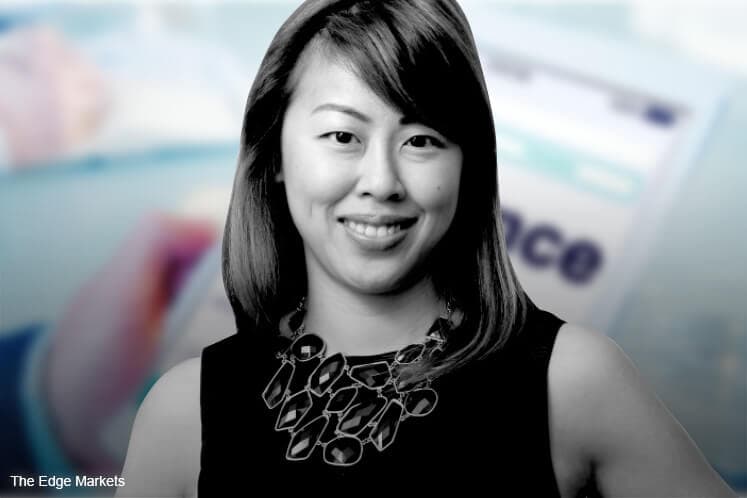
This article first appeared in Personal Wealth, The Edge Malaysia Weekly on May 1, 2017 - May 7, 2017
If you are a CNBC viewer, you must have seen Mad Money. Looking at its host, Jim Cramer, it is hard to imagine that this is an investment show.
Once, when he was promoting Apple’s stock, he wielded a baseball bat and pulverised a Microsoft Zune device while wearing a hard hat and safety goggles. He has also hosted his show dressed as LeBron James and Jason from the Friday the 13th series.
The show has the energy of a shopping channel on steroids — not what you would expect of a fairly stuffy topic of investing. Well, what can you expect when the producers used to oversee The Jerry Springer Show.
Mad Money is so entertaining that it inspired a movie starring George Clooney. Money Monster tells the tale of a financial news host who is taken hostage by an investor wearing a bomb vest after losing all of his money due to a bad stock tip given by Clooney’s character.
Thanks to people like Cramer and Hollywood movies, investments can look exciting. What comes to mind are images of guys trading stocks on the floor of the exchange. There is noise. There is excitement. There is a buzz as ticker codes flash and prices refresh. There is almost a glow of pride when someone says he is an investor and regales people with tales of wins and losses in the market.
Erase that.
Quite the opposite. Investing should be more like watching paint dry or grass grow. If you want excitement, take US$800 and go to Las Vegas. That is what Paul Samuelson, the US’ first Nobel laureate, famously said. If you find investment fun, you are probably taking on more risks than you should. The investing that you see on television or the big screen may be sexy. But if your investments are swinging by the minute, I don’t think that is a great long-term strategy.
Let’s go back to the most interesting word that is going to work for your hard-earned savings — compounding. Not an interesting word, but it describes what takes place when your money makes you more money.
If you had a diversified stock portfolio, according to the rule of 72 and long-term historical returns of equity markets, your money should double every 8 to 10 years. Let’s call this one investing cycle. Assuming you started investing with RM100,000, after one cycle, your money should double to RM200,000. In the next cycle, that RM200,000 should double to RM400,000, and so on.
The graph depicts how your wealth should accumulate over time. The reality is that the returns in your first cycle are going to seem slow — like watching grass grow. Totally unsexy. A lot of us at this point are thinking, “There must be a faster way”, “Nothing much seems to be happening” or “What I make is not going to make a difference”.
At this point, one of two things happens. First, you get complacent. If you do not feel the returns, it is probably not going to make a big difference if you spend it on something else, like a holiday. Alternatively, you think you are probably doing something wrong to produce such slow results. This will lead you to change tactics. You will probably think of new ways to get better returns. But most likely, it will be a riskier strategy, given your pursuit of higher returns.
What we fail to realise is that the part where compounding really counts the most is in the future. The people we are enviously looking at (of whom we complain how unfair it is that the rich are getting richer) are probably the very ones who have been diligently and unsexily sticking to their investment strategy of getting 8% to 10% annually for decades. They are the people who are cycles ahead of where we are and using the power of compounding to multiply their money.
At this point, you might be asking, “If it is so obvious that with patience and some discipline we can grow our wealth exponentially, why aren’t we all rich yet?” It boils down to two things. The first, unfortunately, is that too many of us want instant results. We live in a world of instant gratification. Very few of us want to sow a seed and wait for it to grow into a huge tree that bears bountiful fruit. But that is the process of wealth accumulation.
The second is that we think what we have now to start with is too small to make a difference. It is precisely this “too small” excuse that stops us from starting that savings or investment plan. Starting small affords you the opportunity to make mistakes and learn from them. It should never be the reason for not growing your wealth.
In short, do not be myopic about what your actions today can translate into in the future. Once you have an investment strategy, stick to it. You might be tempted in the short term, but keep your eye on the long-term goal.
Ong Shi Jie (CJ) is head of integrated marketing and analytics at OCBC Bank (M) Bhd
Save by subscribing to us for your print and/or digital copy.
P/S: The Edge is also available on Apple's AppStore and Androids' Google Play.